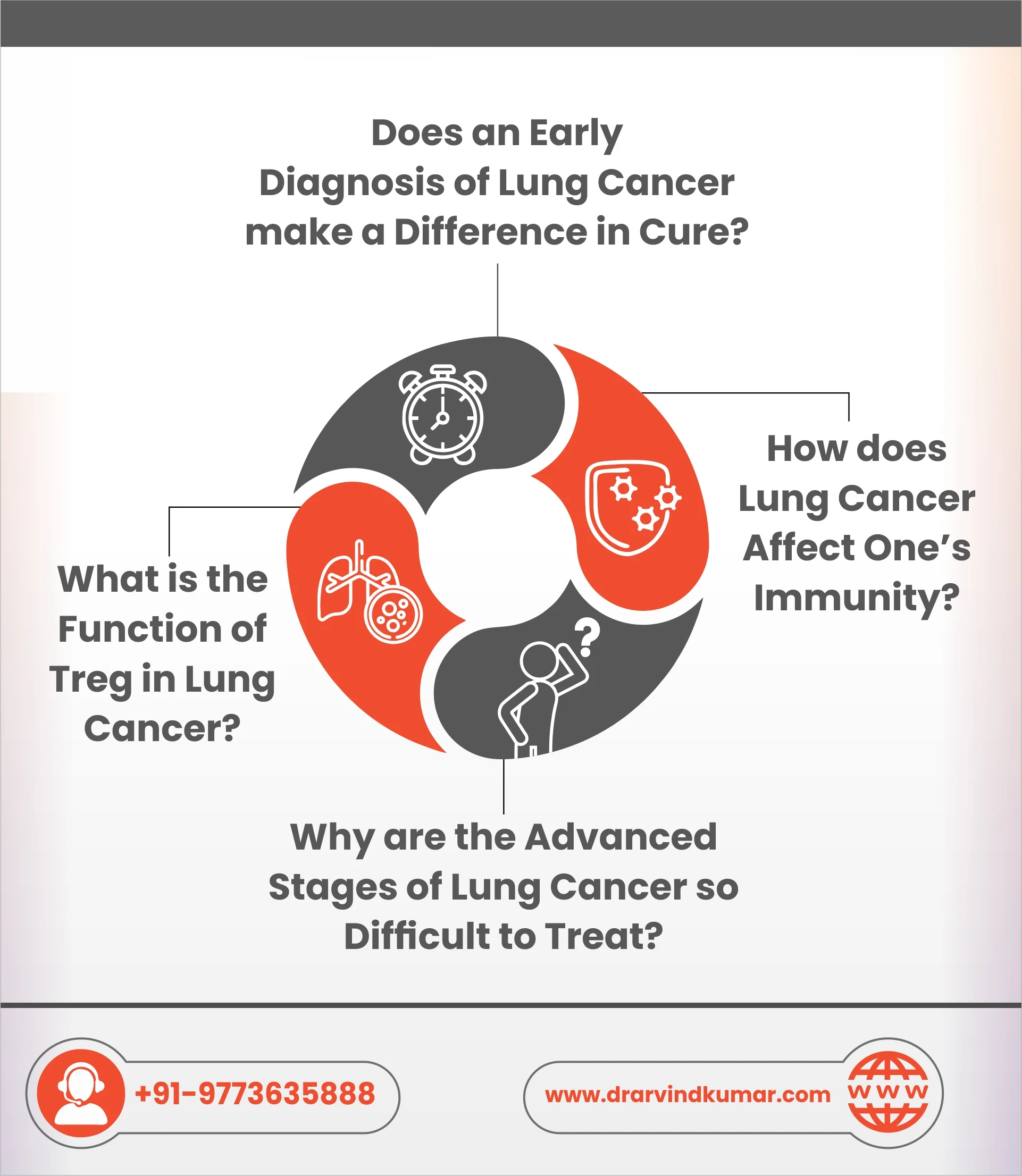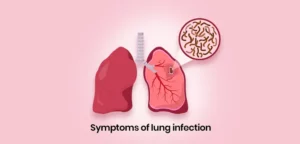Lung cancer is the second-most common type of cancer occurring globally and accounts for the maximum number of cancer-related deaths each year. Seemingly, the statistics confer that lung cancer is a lot more aggressive and often fatal for most patients who are diagnosed with it.
But, as a patient with a lung cancer diagnosis, wondering “Can lung cancer be cured?” is a very common thought. In fact, its often the most common question that patients ask when they are diagnosed.
The road to recovery and remission depends on multiple factors, including the stage of diagnosis, the treatments, how the body is reacting to the treatments, and so on. To better understand life after lung cancer, we need to understand why the disease is so difficult to cure.
Does an Early Diagnosis of Lung Cancer make a Difference in Cure?
If you are sitting there wondering, “Is there a cure for lung cancer?”, the simple answer is No. But, when a doctor declares you lung cancer free, it means that you are currently in remission.
A lot similar to breast and colon cancer, even lung cancer has a high incidence of recurrence in patients who are in remission.
Now, coming to the state of diagnosis. Does an early diagnosis make a difference? Absolutely, yes.
In fact, Dr. Arvind Kumar, a leading chest surgeon in India with 40+ years of experience, believes that the earlier the diagnosis, the better the chances of survival.
Since lung cancer is a progressive disease and it metastasizes quite quickly in the body, diagnosing it at an early stage when the cancer is still localized helps with a better outcome of the treatment, thereby improving the survival rates. Lung Cancer Basics
How does Lung Cancer Affect One’s Immunity?
One of the reasons why cancer is such a deadly disease is because it has the potential to cheat our body’s immunity and go unsuspected while it proliferates and consumes the body inside.
A leading researcher, Dr. Susetta Finotto, the head of the Department of Molecular Pneumology at FAU, in her latest research, highlighted the importance of a special component in the body’s immune signal response – Tbet.
According to her studies, long tumors of lung cancer grow and proliferate in the body in an absence of Tbet, which goes to show that there are chances that a lung cancer patient might have little or no presence of Tbet in their body.
Currently, researchers are looking into another important immune modulator, Treg, which plays a crucial role in determining how lung cancer alters the body’s immune system and why it is so hard to cure.
What is the Function of Treg in Lung Cancer?
When determining how to cure lung cancer, researchers are exploring different aspects of the disease, especially its role in immunomodulation.
The reason why most cancerous cells can bypass and divide in the body, despite a well-built immune system is because of their ability to cheat the immune modulators.
While Dr. Finotto initially started her research with Tbet, her second phase of study focuses on another immune modulator, Treg.
Treg is a crucial factor responsible for reducing active inflammation in the lungs. But, researchers are still confused as to how it impacts the formation and spread of lung carcinoma.
However, a few studies indicate that Treg isn’t just anti-inflammatory. But, it also exhibits anti-tumor properties, which might be responsible for the uncontrolled tumor growth in the lungs, leading to cases of lung cancer in the patients.
One of the reasons why treating lung cancer is so difficult is because the tumors directly reprogram the immune response by increasing the secretion of TGF-beta, which, in turn, increases the levels of Treg cells in the body.
Hence, the greater the number of Treg cells, the more tumors in lung cancer patients. It is a constant cycle, which is triggered inside the body, leading to more and more tumor growth and the eventual spread of those tumors to the other parts of the body.
Currently, the researchers are focusing on targeting those immune pathways and somehow inhibiting them to improve the chances of cure and survival rate in lung cancer patients.

Why are the Advanced Stages of Lung Cancer so Difficult to Treat?
Lung cancer, irrespective of which stage the patient is diagnosed in, is a tough disease to treat and cure. The limitations further expand in patients who are already in the advanced stages of the disease, where the cancer cells aren’t localized but have spread to other parts of the body.
If you are wondering, “Is Stage 4 Lung Cancer Curable?” The answer depends on multiple factors.
To better understand that, we need to understand the limitations of treating lung cancer:
1. Resistance to Anti-Cancer Drugs
Stem cells (the normal ones) undergo a process of self-renewal and differentiation throughout their lifetime. Owing to this, they develop a series of exclusive mechanisms to shield themselves against foreign agents.
While it’s a normal reaction response in standard stem cells, reports suggest that some of the lung cancer stem cells showcase similar properties, making them resistant to anti-cancer drugs.
2. Issues with Cancer Diagnosis
Most lung cancer patients don’t get their condition diagnosed until its too late. Nine out of ten times, the patients are either diagnosed with Stage III or Stage IV, both of which are advanced stages of lung cancer that are very difficult to treat.
Sometimes, it is the non-specificity of the symptoms that delay the diagnosis. No one likes to pay attention to a random and recurring cough, thinking its normal. Taking the symptoms for granted is often the primary issue with a late diagnosis, making lung cancer take a more aggressive form, which is harder to treat.
3. Metastasis is an Underlying Issue
Metastasis is an inevitable property of cancerous cells. They are programmed to multiply and spread. It is only when the cancer is diagnosed at an earlier stage that the doctors can think about performing surgery and excising the tumor with a margin.
But, what happens when the lung carcinoma isn’t localized? Since lung cancer is quite progressive and spreads very quickly, it isn’t surprising that it poses a great issue with the treatment, cure, and potential survival rate.
Conclusion
Lung Cancer is no doubt an aggressive form of cancer. However, with the right care and attention, lung cancer is treatable. Dr. Arvind Kumar, who leads the team of lung cancer specialists at Medanta, believes that prioritizing the symptoms and seeking medical evaluation when needed is the key to beating this deadly disease.
If you are noticing something amiss with your body, contact us directly viahttps://drarvindkumar.com/contact-us.php.
FAQs
Is Stage 1 Lung Cancer Curable?
Stage 1 lung cancer is often a localized type of lung cancer, which can be treated with surgical interventions. If the cancer hasn’t spread and hasn’t affected the lymph nodes, surgery alone is enough to treat the condition.
What is the Survival Rate after Lung Cancer Diagnosis?
The survival rate of lung cancer is subjective. In most cases, the stage of diagnosis makes all the difference. Additionally, how the patient is responding to the treatment also makes a huge difference in the process.

.webp)



